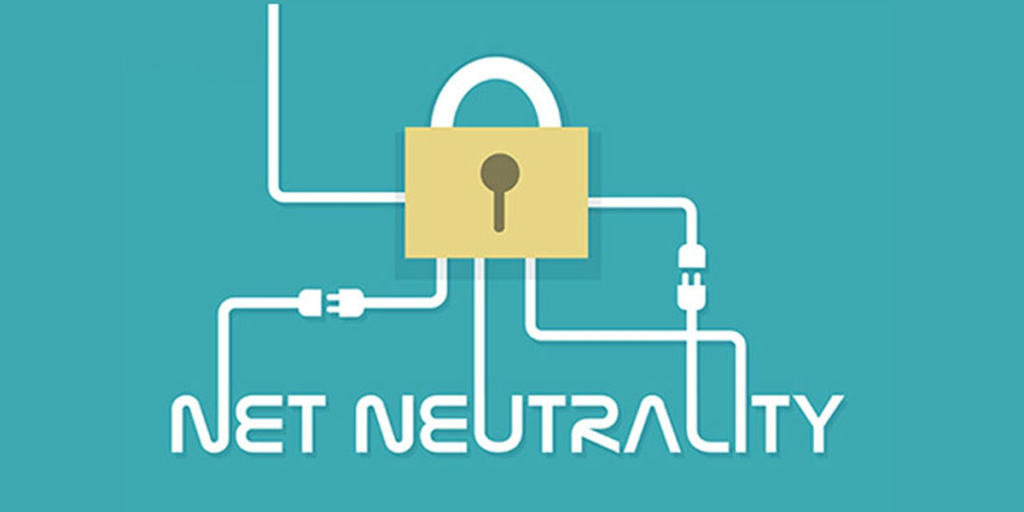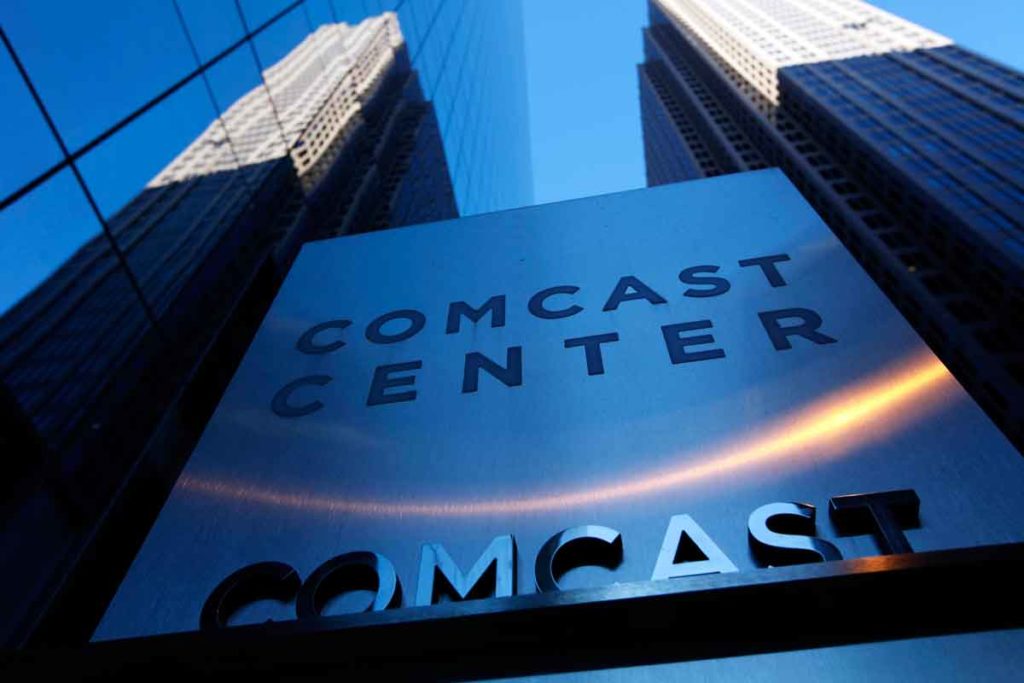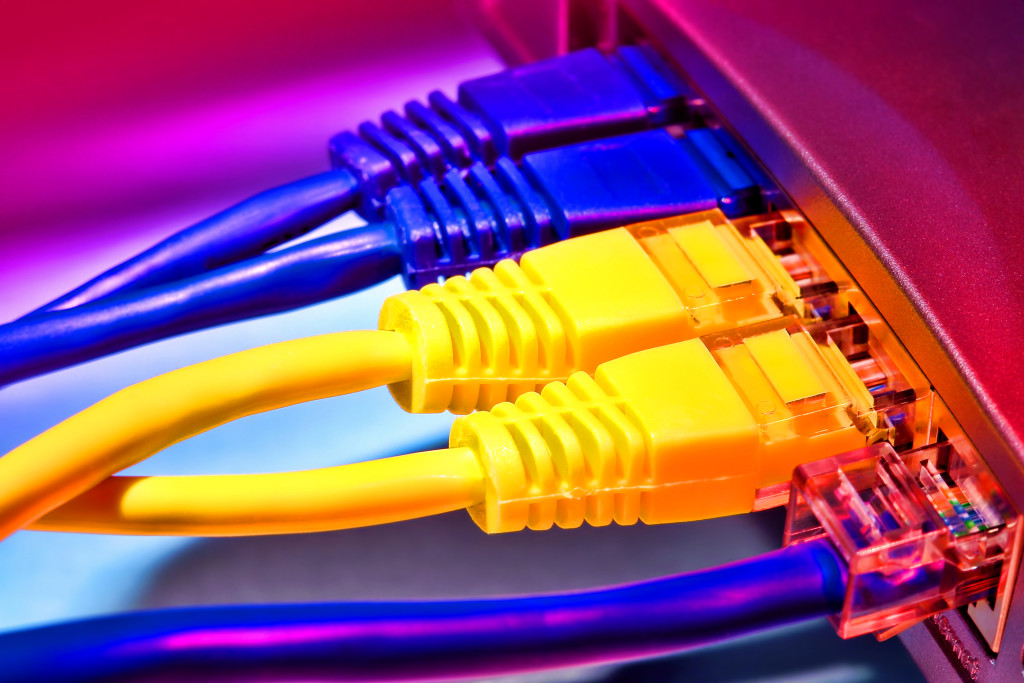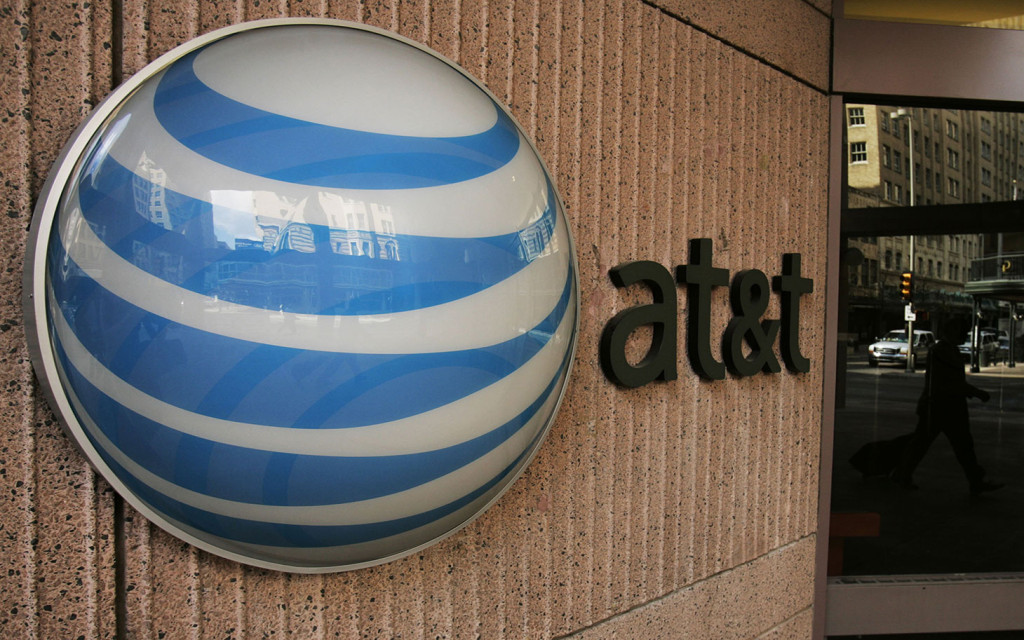The end of net neutrality is officially here

Changes are coming for the way the U.S. government regulates the internet. The Federal Communications Commission (FCC) narrowly voted to dismantle the controversial 2015 Obama-era net neutrality internet regulations — which imposed utility-style regulations on internet service providers (ISPs), which prevented them from blocking, speeding up, or slowing down access to specific online services — in December. Their repeal became official on Monday as part of the FCC’s effort to provide an open Internet while paving the way for better, faster and cheaper Internet access for consumers. On Monday, the FCC implemented the “Restoring Internet Freedom Order,” saying the order “replaces unnecessary, heavy-handed regulations dating back to 1934 with strong consumer protections, increased transparency and common-sense regulations that will promote investment and broadband deployment.” “The 2015 decision to impose these heavy-handed utility-style regulations on the internet was a mistake,” FCC chairman Ajit Pai said in a video, explaining the rules were a “solution in search of a problem” when in fact “the Internet wasn’t broken.” The Internet is “the greatest free-market success story in history,” Pai wrote in a Wall Street Journal op-ed published in November. Regulations “designed in the 1930s to tame the Ma Bell telephone monopoly” are hurting investment, he argued in the piece. What is net neutrality? Net neutrality is the principle that Internet service providers treat all data on the Internet the same, and not discriminate or charge differently by user, content, website, platform, application, type of attached equipment, or method of communication. Intent of the Restoring Internet Freedom Order The FCC’s framework for protecting Internet freedom has three key parts: Consumer ProtectionThe Federal Trade Commission will police and take action against Internet service providers for anticompetitive acts or unfair and deceptive practices. The FTC is the nation’s premier consumer protection agency, and until the FCC stripped it of jurisdiction over Internet service providers in 2015, the FTC protected consumers consistently across the Internet economy. TransparencyA critical part of Internet openness involves Internet service providers being transparent about their business practices. That’s why the FCC has imposed enhanced transparency requirements. Internet service providers must publicly disclose information regarding their network management practices, performance, and commercial terms of service. These disclosures must be made via a publicly available, easily accessible company website or through the FCC’s website. This will discourage harmful practices and help regulators target any problematic conduct. These disclosures also support innovation, investment, and competition by ensuring that entrepreneurs and other small businesses have the technical information necessary to create and maintain online content, applications, services, and devices. Internet Service Providers must clearly disclose their network management practices on their own web sites or with the FCC. For more information about these disclosures, you can visit https://www.fcc.gov/isp-disclosures. Removes Unnecessary Regulations to Promote Broadband Investment The Internet wasn’t broken in 2015, when the previous FCC imposed 1930s-era regulations (known as “Title II”) on Internet service providers. And ironically, these regulations made things worse by limiting investment in high-speed networks and slowing broadband deployment. Under Title II, broadband network investment dropped more than 5.6% — the first time a decline has happened outside of a recession. The effect was particularly serious for smaller Internet service providers—fixed wireless companies, small-town cable operators, municipal broadband providers, electric cooperatives, and others—that don’t have the resources or lawyers to navigate a thicket of complex rules. Removing these outdated and unnecessary regulations will create a strong incentive for companies to pour resources into building better online infrastructure across the country and bringing faster, better, and cheaper Internet access to more Americans. Alabama opposition Upon arriving to the U.S. Sen, newly elected Sen. Doug Jones made quick on his campaign promises to fight to restore net neutrality provisions. In January, he co-sponsored resolution aimed to do just that — overturn Pai’s decision to repeal net neutrality. “A free and open internet is crucial for our nation to remain a leader in the global economy, provide our children a quality education, and promote freedom of speech,” Jones said in a statement. “Repealing the Open Internet Order would allow companies to raise the price of internet access and discriminate against certain internet traffic. Restoring net neutrality is the right thing to do to protect Alabama consumers and to provide an equitable platform for companies of all sizes to compete for their customers.” Senate Democrats managed to pass the resolution in May. It has now moved to the House for consideration, but it faces an an uphill battle. Whether or not repeal of net neutrality has adverse effects on consumers, or actually helps, remains to be seen.
Good on his word, Doug Jones co-sponsors bill to protect net neutrality

Alabama’s newest senator, Democrat Doug Jones is wasting no time getting to work in Washington, D.C. During the campaign, Jones asserted his support of net neutrality. On Tuesday, he made good on his word by announcing he will co-sponsor legislation to repeal the Federal Communications Commission‘s (FCC) decision to end its policy of net neutrality, also known as the Open Internet Order. I strongly support #NetNeutrality and believe every Alabamian should have access to a free and open internet.https://t.co/3XZ9ikWGaa — Doug Jones (@GDouglasJones) November 28, 2017 “A free and open internet is crucial for our nation to remain a leader in the global economy, provide our children a quality education, and promote freedom of speech,” Jones said in a statement. “Repealing the Open Internet Order would allow companies to raise the price of internet access and discriminate against certain internet traffic. Restoring net neutrality is the right thing to do to protect Alabama consumers and to provide an equitable platform for companies of all sizes to compete for their customers.” Jones’ sponsorship comes in the wake of the FCC’s December vote in favor of Chairman Ajit Pai’s plan to roll back the net neutrality regulations, which prevented internet service providers like AT&T and Verizon from slowing down certain content or requiring websites to pay for faster speeds. Now, in order to save net neutrality and counter the FCC’s decision to give internet providers the ability to slow or block some websites while speeding up others, Senate lawmakers must pass a resolution to repeal the new regulations under the Congressional Review Act (CRA), all within a 60-day window that began on Dec. 14. Under the CRA, resolutions allow Congress to overturn regulatory actions at federal agencies with a simple majority vote in both chambers. In accordance with the CRA, the U.S. Senate will formally introduce the resolution after the rule is submitted to both houses of Congress and published in the Federal Register, and then force a vote within 60 legislative days. Currently, Senate Democrats, who are leading the efforts, have recruited 50 votes in the Senate — all Democrats with one lone Republican to their side. They need one more Republican to join them to avoid a tiebreaker that would be decided by Vice President Mike Pence. Being a Republican, Pence would vote on the side of the FCC, thus shutting down the effort for good.
Bradley Byrne: Fighting for rural America

Approximately 46 million people call rural America home, according to information from the Department of Agriculture. These rural communities make up the backbone of our state and play a substantial role in the overall American economy. Unfortunately, rural communities are facing some serious challenges. For the first time on record, the rural population in our country is shrinking. Job growth since 2011 has been below that of urban areas, and the economic recovery has been much slower for rural areas. There are several reasons for the challenges facing our rural communities, but I am committed to working with my colleagues in Congress and President Donald Trump to make life better for those in rural America. Just last week, President Trump became the first sitting U.S. president since 1992 to address the American Farm Bureau. The Farm Bureau serves as a leading voice for our nation’s rural communities and farmers. Agriculture is the top industry in rural America, and it remains the number one industry in Alabama. In his speech, President Trump declared that “our farmers deserve a government that serves their interest and empowers them to do the hard work that they love to do so much.” This year, Congress will need to pass a new Farm Bill. The Farm Bill is critical because it sets the federal policies that govern our nation’s farmers. As a strong champion for agriculture, I have already started working with Alabama’s farmers to ensure the bill is good for them and our rural communities. Farming is unlike most other industries and dependent on so many external factors, like weather, that are outside the control of the farmers. It is important farmers have the certainty they need to provide the American people with a safe and reliable food source. The Tax Cuts and Jobs Act, the major tax reform legislation that passed in December, includes several provisions that will help farmers in rural America. In addition to lowering individual tax rates, the bill allows farmers to deduct 100% of the cost of new equipment in the year you make the investment. Farming is a very capital-intensive industry, so this is a real victory for farmers. Another significant issue facing our rural communities is a lack of broadband access. According to the Federal Communications Commission, 39 percent of rural Americans lack sufficient broadband access. Without access to broadband and internet, individuals struggle to keep up in an economy that is increasingly dependent on technology. In an effort to expand broadband access, President Trump recently signed two Presidential Orders to help get faster and better internet coverage to rural America. The goal is to cut back on some of the government regulations and processes that make it harder to expand broadband access while also increasing the overall investment from the Department of Agriculture. One other key to boosting rural America is to focus more on career and technical education programs to ensure individuals have the skills that they need to excel in today’s economy. By putting more money toward these workforce training programs, I believe we can help revitalize rural America and increase access to high-paying jobs. I firmly believe the investment in these programs is well worth it in the long run because it helps keep people off government welfare programs, improves the overall economy, and makes the individual’s life better. These are just a handful of ways we can help restore rural America and revitalize our rural communities. Our nation is strongest when rural America is strong, and I am committed to that fight. ••• Bradley Byrne is a member of U.S. Congress representing Alabama’s 1st Congressional District.
How a Trump Administration could shape the internet

Under a President Donald Trump, cable and phone companies could gain new power to influence what you do and what you watch online – not to mention how much privacy you have while you’re at it. Republicans who generally oppose regulation seem likely to take charge at the Federal Communications Commission, the government’s primary telecom regulator. That alone could mean the end of rules designed to protect privacy and individual choice on the internet. Those rules were enacted over the past several years under the Obama administration. Under Trump, “the FCC will be a lot more focused on getting government out of the way,” said Berin Szoka, president of TechFreedom, a think tank that opposes much regulation. Phone and cable companies routinely protest that regulation lead them to invest less in their networks, harming their ability to deliver better service. Deregulation raises concerns for consumer advocates – not just in terms of rolling back rules, but also potentially allowing more huge mergers, which several analysts expect despite Trump’s campaign swipes at big media . Under the coming administration, a laxer FCC could result in even higher cable and internet bills, worse customer service and fewer choices, says Harold Feld, senior vice president at public-interest group Public Knowledge. Of course, it’s difficult to know exactly what to expect, given Trump’s aversion to policy specifics and frequent reversals during the campaign. Representatives for Trump’s transition team didn’t reply to requests for comment. NET NEUTRALITY One possible first target: Rules that aim to protect individual choice and innovation on the internet. Suppose that firing up Netflix or YouTube led only to delays and stuttering playback that still counted against the limited data in your broadband plan – a sharp contrast to the speedy video app offered by your phone or cable company, which incurs no data costs. That’s one scenario the Obama-era FCC sought to ward off with “net neutrality” regulation that requires internet providers to treat all data traffic equally on their networks, as the internet has historically worked. Without net neutrality, your access to many popular services might be degraded by your local cable or phone company. Startups could have trouble delivering new video or virtual-reality services. Companies that provide internet service could find it easier to push their own options instead. The net-neutrality rules are popular, so they’re not likely to completely disappear under Trump. But the FCC might well be more restrained in enforcing them. Internet providers could use subtle tactics and behind-the-scenes maneuvers to change people’s behavior and make more money, suggested Matt Wood, policy director at the public-interest group Free Press. Consumers might eventually find that they have fewer services to choose from online, or that using them is more difficult or expensive. PRIVACY, OPENNESS AND INTERNET ACCESS If the Trump FCC whacks away at existing regulations, cable and phone companies are going to find it a lot easier to mine your browsing habits and other information for data they can use to target ads at you. Verizon, for example, is eager to build a digital-ad business to compete with Google and Facebook. But recent privacy rules force them to ask customers for permission before using their data. Those companies have made no secret of their dislike for this requirement. The FCC’s effort to “open up” the cable box in ways designed to give you more options for hooking up TVs and streaming gadgets to cable service is likely dead. Its effort to subsidize internet for low-income people may face budget cuts, although cable companies do offer separate cheap internet options for low-income people. MERGERS During the campaign, Trump spoke out several times against media giants, in particular when he said he’d reject AT&T’s $85.4 billion acquisition of Time Warner and that he might look at breaking up Comcast and NBCUniversal. But some analysts think that with Republicans in charge of agencies like the FCC and the Department of Justice, mergers are more likely to sail through. The new administration might make it easier for AT&T to buy Time Warner and reserve some of the conglomerate’s TV programs and films for its own subscribers, said MoffettNathanson analyst Craig Moffett. Analysts had expected regulators to impose consumer-protection conditions on the merger if it’s approved. But under the Trump administration, AT&T might remain free to hold back new episodes of “Game of Thrones” for a few weeks – or maybe even everything on HBO – unless you’re an AT&T cellphone or home internet customer, he said. If so, Verizon or Charter might go shopping for their own entertainment conglomerates to compete for customers. That could create a world in which the TV you watch would be heavily influenced by the company that supplies your internet service. AND A BIG WILDCARD But Trump’s FCC could also do something unexpected. Public Knowledge’s Feld, for instance, worries that the administration could harness the FCC’s existing tools to police media companies and limit freedom of the press. For instance, the FCC could threaten to condition renewal of broadcast licenses on how news programs cover the administration, said Floyd Abrams, a longtime First Amendment lawyer. The agency could threaten to go after a company like Comcast, which owns NBC and MSNBC, for a net neutrality violation on its cable side to try to pressure coverage. “The FCC has so much authority over policies which have an enormous and direct impact financially” on the industry, Abrams said. “Even an informal nudge in one direction or another, informal pressure of one sort or another, can have major impact.” Of course, such action could bring Trump into conflict with the GOP Congress, which generally favors limits on FCC power. But there’s no way to know how that would play out at this stage. Republished with permission of The Associated Press.
Robert Bentley, GOP governors ask FCC to address illegal prison cellphones

Ten Republican governors want the Federal Communications Commission to give states more autonomy to apply technology that can stop prison inmates from using smuggled cellphones. Gov. Nikki Haley and her counterparts encouraged FCC Chairman Thomas Wheeler in a letter Monday to give them “flexibility and authority” to render such communication impossible. While the letter doesn’t explicitly say so, what the governors want is permission to jam cellphone signals behind bars. A 1934 law says the FCC can grant permission to jam public airwaves only to federal agencies, not state or local ones. The cellphone industry has strongly opposed the use of localized jamming technology out of concern that it could set a precedent leading to much wider gaps in their networks. The governors say the technology would be strictly limited to prisons, and that society outside would not suffer. “The FCC should act to streamline regulatory review processes and allow states to implement cost-efficient technology in prisons, where the installation of such technology will not sacrifice the safety of the general public,” reads the letter, which was proposed by Haley and also signed by governors from Alabama, Georgia, Indiana, Maine, Mississippi, Nebraska, North Dakota, South Dakota and Utah. Haley has long spoken of the dangers of illegal cellphones behind bars. Smuggled by the thousands inside hollowed out footballs, whisked in by corrupt employees or sometimes even dropped by drone, these phones can give inmates an unmonitored, unfettered means of continuing their crimes and even perpetrating violence. “This is something that has a solution to it,” Haley testified last month at an FCC field hearing in Columbia. She said the state has tried other methods, none as effective as signal blocking. “Allow us to jam our prisons. … Something has to change.” Robert Johnson, a former anti-contraband officer at one of South Carolina’s most violent prisons, was shot six times outside his Sumter home in 2010, after police said an inmate used an illegal cellphone to order the hit. He survived, enduring more than a dozen surgeries, and has become an advocate for using jamming technology in prisons. South Carolina Corrections Director Bryan Stirling and his predecessor, Jon Ozmint, also have sought this permission, to no avail. In 2008, South Carolina got FCC permission for a one-time test at Lieber Correctional Institution, home to the state’s death row. Officials flipped a switch on a briefcase-sized device that emitted a frequency that immediately shut down cellphones inside an auditorium. Outside in the hallway, cell service was uninterrupted. Commissioner Ajit Pai, who oversaw April’s field hearing, called the status quo “not acceptable” and said he would renew a discussion about next steps. In a statement provided to The Associated Press, Wheeler said he agreed contraband cellphones are “a serious problem” and would work with Pai on the issue. Asked Tuesday about Haley’s letter, Pai said it’s time for the agency to act. “The FCC needs to take a leadership role in helping corrections officials combat this problem,” Pai told AP. “We must take action, and now.” Republished with the permission of The Associated Press.
Robert Bentley highlights need for faster internet in rural Alabama

Gov. Robert Bentley is meeting with rural educators to highlight his plan to expand high-speed internet service across Alabama. Bentley visited the southwest Alabama town of Monroeville on Monday, saying an area can’t have a top educational system without a fast connection to the digital world. Bentley hopes to use Education Trust Fund money to match a federal grant program called E-rate to expand connectivity in rural parts of the state. A 2015 Federal Communications Commission report found almost 35 percent of Alabamians don’t have high-speed internet service. Some rural schools, like Monroeville Elementary, have updated technology like personal laptops but are still hobbled by expensive and spotty internet service. Republished with permission of the Associated Press.
FCC provides funding for expanded broadband in Alabama

An Arkansas-based company is getting more than $500,000 annually in federal funds to expand high-speed internet service in rural Alabama. The Federal Communications Commission says Windstream Communications Inc. will offer broadband service and support to nearly 3,800 customers in rural parts of the state. The company will receive $511,000 in what’s described as annual, continuing support. Additional service is expected in nine counties in central Alabama. Officials say the money comes from a program that provides support to extend service into areas that wouldn’t otherwise have high-speed Internet. Nationwide, Windstream has accepted nearly $175 million in federal funds to expand high-speed service. Republished with permission of The Associated Press.
AT&T hit by FCC with $100M fine for slowing speeds

AT&T Mobility LLC has been slapped with a record $100 million fine for offering consumers “unlimited” data, but then slowing their Internet speeds after they reached a certain amount. The company says it will fight the charges. The Federal Communications Commission said Wednesday that the company misled consumers into buying plans they thought would give them unlimited ability to send and receive data, including Web browsing, GPS navigation and streaming videos. But once the consumer hit a certain level, the data on unlimited plans would be slowed down significantly, at speeds lower than advertised, the FCC said. AT&T said it would “vigorously dispute” the fine, which was the largest proposed in FCC history. If AT&T can provide evidence that the FCC allegations are wrong, the fine could be reduced. Otherwise, if AT&T refuses to pay, it’s possible the two sides will wind up in court. “The FCC has specifically identified this practice as a legitimate and reasonable way to manage network resources for the benefit of all customers, and has known for years that all of the major carriers use it,” the company said in a statement released to reporters. “We have been fully transparent with our customers, providing notice in multiple ways and going well beyond the FCC’s disclosure requirements.” It’s not unusual for phone companies to slow, or “throttle,” speeds on a network as a way to manage congestion. Verizon slows down speeds for its heaviest users, but only on certain smartphones when there is congestion. Once the bottleneck eases, speeds return to normal. Until this spring, AT&T was slowing speeds until the customer’s next billing cycle, even when there was no congestion. Both Verizon and AT&T had phased out their unlimited plans after data usage grew following the iPhone’s launch in 2007. Existing customers, however, were able to keep their unlimited plans. The FCC says AT&T’s approach to unlimited plans violated the agency’s transparency rule. “Unlimited means unlimited,” said Travis LeBlanc, the FCC enforcement bureau chief. “As today’s action demonstrates, the commission is committed to holding accountable those broadband providers who fail to be fully transparent about data limits.” The hefty fine by the FCC comes on the heels of a federal lawsuit filed against the company last fall. The Federal Trade Commission, which enforces rules against deceptive advertising, said it wants to refund customers who were offered the unlimited data packages, only to be given slower data speeds than advertised. That lawsuit is still working its way through a federal court in California. Earlier this year, the FTC accused TracFone Wireless of similar tactics. TracFone agreed to settle the case for $40 million. AT&T Mobility is located in Atlanta and is a subsidiary of Dallas-based AT&T Inc. Republished with permission of The Associated Press.
Comcast abandons Time Warner bid after government pushback
What killed Comcast’s $45 billion bid for Time Warner Cable? Regulators’ desire to protect the Internet video industry that’s reshaping TV. A combination of the No. 1 and No. 2 U.S. cable companies would have put nearly 30 percent of TV and about 55 percent of broadband subscribers under one roof, along with NBCUniversal, giving the resulting behemoth unprecedented power over what Americans watch and download. Competitors, consumer groups, and politicians have criticized the deal, saying it would lead to higher prices and less choice. “The proposed merger would have posed an unacceptable risk to competition and innovation, including to the ability of online video providers to reach and serve consumers,” Federal Communications Commission Chairman Tom Wheeler said in a written statement. The Justice Department said that Comcast dropped its bid because of regulators’ concerns that the Philadelphia-based cable giant would become an “unavoidable gatekeeper” for Internet services. One of the concerns consumer advocates and competitors had with the Comcast deal was that it could undermine the streaming video industry that is reshaping TV. Comcast could, for example, require onerous payments from new online-only video providers for connecting to its network. Dish, the satellite TV company behind the new Web video service Sling TV, and Netflix opposed the deal. “It goes to show you how important broadband is,” said Amy Yong, a Macquarie analyst. Regulators have taken other steps that signal how important they consider Internet access. The Federal Communications Commission in February released new “Net Neutrality” rules meant to keep broadband providers from charging Internet companies for “fast lane” access or favoring some content. The broadband industry has sued to stop the rules. “We have to live with it, and respect that, and move on,” Comcast Chairman and CEO Brian Roberts said in an interview on CNBC, referring to the government’s opposition to the deal. “We always structured this deal in a way that would enable us to walk away.” Comcast doesn’t owe Time Warner Cable a breakup fee because the deal didn’t work out. With the deal between Comcast Corp. and Time Warner Cable Inc. called off, a transaction with Charter Communications Inc. aimed at smoothing the way for regulatory approval also falls apart. Even with the Comcast and Time Warner Cable deal being nixed, cable companies are likely to keep combining as costs rise for the shows, sports and movies they pipe to subscribers while video customers decrease. Many analysts expect that Charter Communications could resurrect its own effort to acquire Time Warner Cable. A combined Charter and Time Warner Cable would have 15 million video customers and 16.5 million Internet customers. That’s still smaller than Comcast alone, which has 22.4 million video subscribers and 22 million Internet customers. And the $48.5 billion combination of DirecTV and AT&T is still expected to go through. Shares of Time Warner Cable Inc. rose $2.74 to $151.50 in morning trading while Comcast shares slipped 8 cents to $59.18. Republished with permission of The Associated Press.


